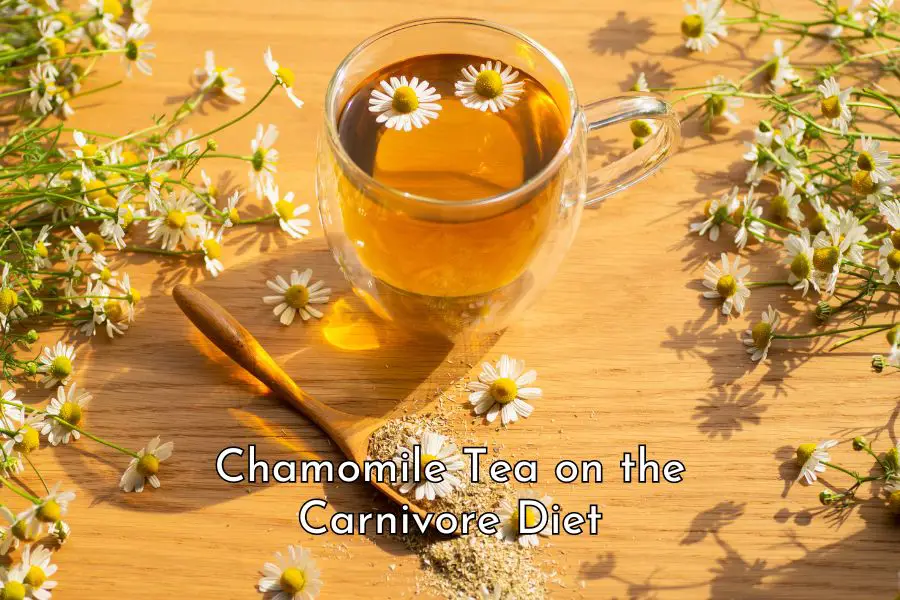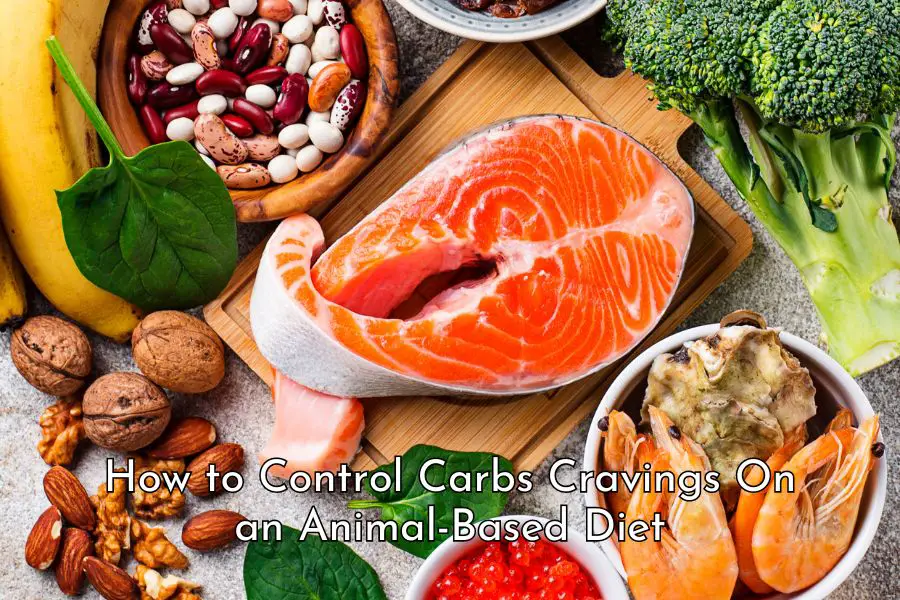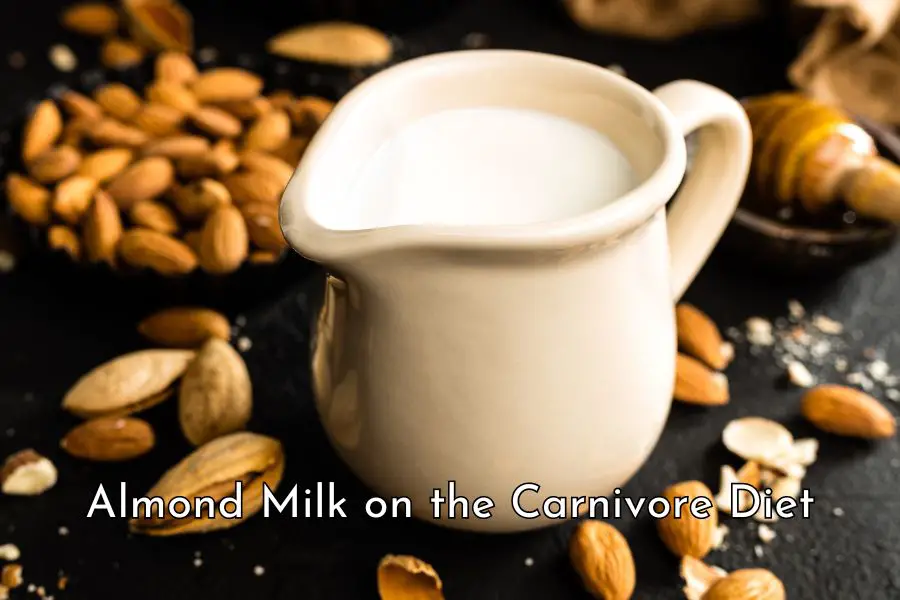If you have been on the carnivore diet for a while but not getting the kind of results you are after, please check out the common carnivore diet mistakes below which may prevent you from seeing the changes that you are looking for.
Table of Contents
- Worrying about meeting RDAs
- Consuming too much PUFAs
- Fearing fat and saturated fats
- Eating too much processed meat
- Not testing for food sensitivity
- Worrying about nutrition deficiency
- Overcooking your meat
- Deliberately adding a lot of salt to your diet
- Using herbs, spices, and condiments
- Adding fruits and honey
- Quitting too soon
Worrying about meeting RDAs
If you just eat meat, you are unlikely to meet the recommended daily allowances (RDAs) or daily reference intakes (DRIs) set by the Institute of Medicines for many nutrients. [1]
For example, the current RDAs for vitamin C is 75mg/day for women and 90mg/day for men. If you eat just muscle meat, you will get about 21 mg of vitamin C a day and fail to meet the RDA for this nutrient. [2, 3]
This may be a concern for some people and they will try to meal-plan and supplement in order to meet those RDAs.
However, the context is what matters here.
The RDAs are set for the general population and are likely not suitable for a very minority group who are on an animal-based diet or a carnivore diet.
For example, the USDA Dietary Guidelines for Americans recommend that adults get a whopping 45%-65% of total calories from carbohydrate sources. [4]
With such a high level of carbohydrate intake, vitamin C requirement also needs to be a lot higher because glucose and vitamin C are known to compete for absorption. [5]
On the carnivore diet, there would be a negligible amount of carbohydrate (glucose) intake competing with vitamin C for absorption. Hence you don’t need a lot of vitamin C because whatever you consume would be utilized efficiently.
While you may use these RDAs as a reference range for various nutrients, it is not necessary to tweak your diet or take supplements to adhere to these requirements.
Our ancestors dined on the meat of large herbivores throughout most of the human evolution and they not only survived but thrived on this diet. [6]
Consuming too much PUFAs
Animal-based food is the most nutrient-dense food you can eat, but some are better than others because of how they are raised nowadays.
If you eat a lot of bacon, sausages, pork, and chicken on the carnivore diet, your intake of polyunsaturated fats (PUFAs) is likely to be high and that may be what stop you from feeling your best.
Pigs and poultry are monogastric animals, i.e. they have a single stomach and are unable to convert polyunsaturated fats into saturated fats like ruminants (cows, sheep, and goats) who have multiple stomachs. [7]
This means if they are fed a diet high in PUFAs (likely so if they are factory-farmed), their meat will be high in PUFAs as well. Pigs and poultry are pretty much what they eat.
And, it is the same case with humans. Because we are also monogastric animals, if we eat a diet high in PUFAs, we will accumulate more PUFAs in our fat as well.
And the high level of PUFAs in your diet may be what makes you feel unwell.
PUFAs have been linked to many chronic inflammatory diseases such as nonalcoholic fatty liver disease, cardiovascular disease, obesity, inflammatory bowel disease, rheumatoid arthritis, Alzheimer’s disease, and cancer. [8, 9, 10]
Therefore, if you can’t afford pasture-raised pork and chicken, make ruminant meat the staple of your diet. Eat beef, lamb, goat, bison, and buffalo and avoid or eat pork and chicken very sparingly.
Fearing fat and saturated fats
If you don’t eat enough fat, you will feel unwell on the carnivore diet.
Your body only needs so much protein for muscle synthesis and other functions and it needs a lot of fat for fuel, probably a lot more fat than you have ever eaten before in your life.
Too much protein even makes you sick. Because your liver has a limited capacity to deaminate proteins, a too high protein intake can lead to protein poisoning or the “rabbit starvation syndrome”. [11]
Fat doesn’t make you fat and saturated fat doesn’t clog up your arteries and cause heart diseases. [12, 13, 14, 15]
The best thing to do is to listen to your body, it has an amazing ability to tell you what is good for you.
It’s likely that just fatty cuts of meat with plenty of visible fat will feel most satisfying for you.
Most people feel best on a fat-to-protein ratio of around 70:30 or 80:20 (in terms of calories).
As a rough guide, ground beef and ribeye steak will give you these approximate ratios.
If you eat leaner cuts than those, add a bit of tallow, ghee, or butter and you will be fine. There is no need to make it more complicated than that.
Eating too much processed meat
Processed meat is still carnivore but it is not the best type of meat you can eat and you shouldn’t eat it as much as you want.
Conventional bacon, for example, in addition to being high in PUFAs, also contains additives for curing or preserving purposes.
Common ingredients in bacon are pork, salt, sugar, seasonings, sodium nitrite, sodium phosphate, sodium erythorbate and smoke and you certainly don’t want to consume a lot of those.
Similarly, other processed meat like sausages, ham, smoked meat, hot dogs, and salami also contain additives and byproducts of the meat processing like nitrite, nitrate, n-nitroso, polycyclic aromatic hydrocarbons that have been linked to health problems. [16, 17, 18, 19, 20, 21]
While studies that raise health concerns in relation to the consumption of food additives like nitrites and nitrates are mainly observational in nature and we are not exactly sure of their impact on human health, processed meat wasn’t part of our ancestors’ diet and it’s best to avoid or limit consumption.
Not testing for food sensitivity
Some people may be sensitive to certain animal-based food like milk, cheese, chicken, or pork, and cutting them out could make all the difference.
People who come to the carnivore diet may have very different health and genetic backgrounds. Some may be okay to eat almost every animal-based food available but some may be sensitive to certain foods and are not even aware of these potential problems.
The best way to find out is to start with the safest meat (e.g. beef) and add one food at a time to test for sensitivity.
Worrying about nutrition deficiency
When it comes to sources of essential vitamins and minerals, most people would immediately think of fruits and vegetables.
So, naturally, when they move to the carnivore diet and no longer eat plant-based food, they are worried about meeting RDAs and the risk of nutrition deficiency.
Meat alone can provide every essential nutrient that your body needs, maybe not at the levels that the Institute of Medicine recommends you to get from your diet on a daily basis, but as mentioned above, their recommendations are not set for people on a meat-only diet who don’t consume tons of carb-rich and other highly processed foods.
Furthermore, although we don’t have long-term data on the nutritional status of people on the carnivore diet but nutrition deficiency amongst this minority group is unheard of.
The Inuit didn’t suffer from scurvy on a traditional diet of mostly meat all year round.
It doesn’t look like the Maasai people who live mostly on meat, fat, milk, and blood from their cattle suffer from mineral deficiency either because they are very tall and free from modern lifestyle diseases. [22]
Meat is low in magnesium, but in a study looking at 50 subjects who were on the Paleolithic Ketogenic Diet (a high-fat animal-based diet), 49 subjects had normal magnesium levels and only one subject had a slightly lower than the normal range. [23]
In short, if you are one of those who worry about nutrition deficiencies (e.g. vitamin C, calcium, vitamin K, omega 3, etc.), stop worrying, enjoy your steak and keep it simple.
Eat fresh unprocessed meat, drink water, get plenty of sunshine, stay active and keep your stress down. That’s how our ancestors used to live and I think that is the kind of lifestyle we should all aim for.
Overcooking your meat
Overcooking your meat may interfere with digestion and prevent you from feeling your best.
Consuming raw meat was the reality for most of the human evolution and, as a result, the human digestive system is well capable of handling raw meat.
The acidity of the human stomach is extremely high, even higher than in carnivores and equaling that of scavengers indicating its ability to kill ingested pathogens. [24, 25]
Even in some cultures today, eating fresh raw meat after a kill is still practiced.
There are some remnants of this practice in modern cuisines (e.g. sashimi, sushi, carpaccio, steak tartare, ceviche, and raw milk) but not much.
Cooking does destroy the natural enzymes in meat that help with the digestive process. However, what we are not sure about is whether that would have a significant impact on our ability to digest food and absorb nutrients because we do produce our own digestive enzymes. [26]
Some people say they feel better and more filling on raw meat than cooked meat and that may be due to the fact that natural enzymes in raw meat, a living food, make it a lot more bioavailable.
Alexander Ugolev, a famous Russian scientist once conducted a well-known experiment with two dead frogs, one cooked and one uncooked.
He placed each in a cup filled with a carnivore’s stomach acid.
While the cooked frog remained largely intact with only minor surface change, the uncooked frog was completely dissolved thanks to the autolysis or a self-destruction process that happens when living cells with intact enzymes come into contact with the stomach acid.
There is certainly a “yuck” factor when it comes to eating raw meat and there is also a concern with regard to its safety.
One way to overcome this is to blanch your meat (dipping it in boiling water for a very short period of time) or sear all sides of the meat.
Some people just eat raw meat if they can get it from a reliable source. Some freeze the meat first and then thaw and eat it raw.
It is entirely up to you to consider various risk factors and decide if you want to experiment with going raw or not.
However, some tough cuts of meat like beef tendon, pig feet, chicken wings, ribs, and shanks do need a relatively long cooking time.
Deliberately adding a lot of salt to your diet
You don’t need to deliberately increase your salt intake on the carnivore diet because, with the extremely low level of carbohydrate intake on this diet, your salt need will go down, ceteris paribus.
You may have heard of or been advised to increase your salt intake on the carnivore diet. However, based on my research, I don’t believe it is necessary.
First of all, your salt requirement on the carnivore diet is likely to be lower compared to diets rich in plant-based food.
This is because sodium is needed to transport sugar (broken down from carbohydrates in plant-based food) from your gut to the bloodstream. When your carb intake is negligible like on the carnivore diet, your salt requirement will be a lot less.
Furthermore, throughout most of human evolution, our ancestors did not have access to salt. There is no evidence that salt was a part of their diet until very recently when they were forced to become farmers in order to survive. [27, 28]
Some ethnic groups that followed traditional meat-based diets like the Eskimos, the Maasai, and some of the northwest American Indians also did not add salt to their food. [29, 30]
Your body does need sodium and chloride which are the two main ingredients in salt. However, animal-based food already contains both sodium and chloride and can provide sufficient levels of sodium, chloride, and other electrolytes to meet your body’s needs in perfect natural ratios.
Some people on the carnivore diet also reported feeling better without salt.
However, there is insufficient strong evidence indicating that salt consumption per se or salt consumption above the current recommended level increases health risks.
Therefore, listen to your body and salt as you feel you need to.
Also note that, if you can’t eat meat without salt, it just means that you are not genuinely hungry, it doesn’t mean your body is craving salt.
Using herbs, spices, and condiments
A little bit of herbs, spices, and condiments on the carnivore diet, if well tolerated, is perfectly fine. However, for some people with underlying chronic health problems, even a little bit of herbs, spices, and condiments can be problematic.
If you have some health problems that have not been completely resolved, try to go strict carnivore and eliminate all herbs, spices, and condiments to see if that makes any difference.
If your health has improved but you can’t seem to get rid of the last few pounds to reach your desired weight goal, consider cutting out all seasonings as well.
Seasonings make food taste nicer and encourage you to eat more and that is the opposite of what you want when you are trying to lose weight.
Returning to our ancestral roots by simply just eating meat and drinking water can be the answer to many seemingly very complex health problems.
Adding fruits and honey
Some people are of the view that a meat-based diet that includes meat plus fruits and honey is the optimal diet for humans but this might not be for everyone.
The problem with fruits these days is that they are nothing resembling what our ancestors used to eat.
As a result of thousands of years of selective breeding by farmers and genetic engineering in recent times, they are gigantic and a lot sweeter than the wild variety that our ancestors used to eat.
Fruits and honey are both very high in carbs and, if you have been on a Western-style diet before, you will know that carb-rich food can be very addictive and super hard to portion control.
If you feel good adding a bit of fruit and honey to your animal-based diet, it’s fine, but it’s not a good idea to eat a lot of those, regardless of whether they are organic and locally grown or not.
If you think you are not feeling your best yet, have some unresolved metabolic issues, or need to shed the last few stubborn pounds, maybe try cutting out fruits and honey for a while to see if there is any improvement.
Quitting too soon
Some people decide to quit the carnivore diet too soon before they begin to see the results that they are after.
But how soon is too soon, it really depends.
Some people may feel like a new person just after a month on this diet while some may still struggle with digestive issues after several months and concludes that this diet is not for them and decide to quit.
There is this rule of thumb that for every year that you’ve been on the standard Western-style diet, give your body one month to recover from.
Perhaps you can try that to see how it goes.
An alternative is to reach out to the carnivore diet community and ask for help with adaptation problems, concerns or any other issues that you may be facing. Many have been there before and are generally very supportive and willing to help.
Other posts you might be interested in:
Is Carnivore the Best Anti-Aging Diet Around?
Carnivore Diet for Beginners: 15 Tips for Success
How to Lose the Last Few Pounds on the Carnivore Diet?
Grass-fed vs Grain-fed Beef on the Carnivore Diet
Do You Really Need to Fast on the Carnivore Diet?
Disclaimer: The information in this post is for reference purposes only and is not intended to constitute or replace professional medical advice. Please consult a qualified medical professional before making any changes to your diet or lifestyle. Please check out our disclaimer for more detail.
Photo credit: Pixabay





